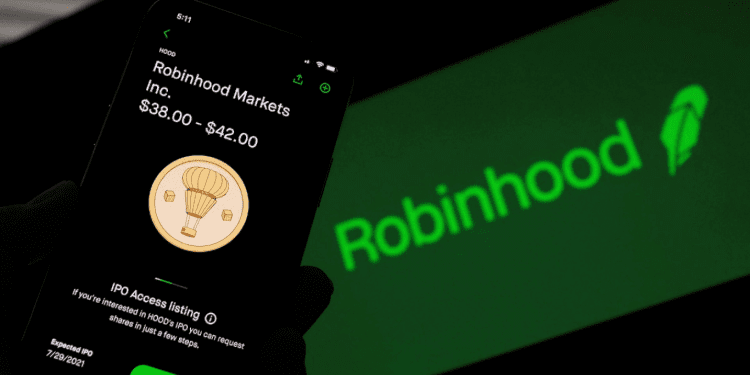- Robinhood has released a Web3 wallet for iOS in more than 130 countries
- The wallet includes Ethereum and ERC-20 token support in response to high customer demand
- Robinhood said that the Web3 wallet is self-custodial and users should create a backup for their wallets
Robinhood recently released its official Web3 wallet on the Apple App Store. iOS users in more than 130 countries can now use the app for free, although Android users will need to wait until its official release in September. The wallet supports Ethereum and over 50 ERC tokens that can be traded without transaction fees. Since the beta launch, new features have been added, such as the ability to collect and store nonfungible tokens (NFTs) on Ethereum and Polygon networks.
For security measures, Robinhood Wallet requires users to set up either Face/Touch ID or a custom PIN for authentication when opening the app and create a secret recovery phrase or seed phrase that allows access to the wallet and crypto. Users can also back up their wallets by writing them down, storing them offline, or securely saving them.
Despite this, some users have expressed discontent with the security tools, with some saying that the purpose of storing seed phrases on iCloud contrasts with the overall security of the wallet.
Redditor u/wpeironnet posted their overall experience with the wallet.
They said, “It’s tempting to users because it’s directly integrated with the Robinhood app and has Defi and NFT capabilities. Robinhood has, time and time again, been highly scummy. Here’s an example. They have been fined over 70 million dollars for misleading and manipulative actions toward customers. They have also been fined for manipulating assets by freezing accounts and trading on specific stocks and crypto.
A company that will freeze your account, holdings, and trading of certain investments based on their views and ulterior motives is NOT to be trusted. Have we learned nothing as a community?”
Robinhood spokesperson Kerbrat claimed that feedback around the wallet has been” extremely positive” despite some direct negative feedback.
The launch follows news of a December subpoena from the United States Securities Exchange Commission (SEC) sent to investigate the Robinhood Markets cryptocurrency listings, custody, and platform operations.
Robinhood’s Past Rubs Off on Crypto Community
2021 has been a controversial year for Robinhood, primarily for handling GameStop (GME) and Dogecoin (DOGE).
Robinhood caused a sensation in January when it abruptly prevented customers from buying GME shares on its platform. This was widely criticized by retail investors and well-known people such as Elon Musk, who felt that this was an attempt to manipulate the stock market. Robinhood apologized and soon resumed trading but not before widespread displeasure amongst investors affected by the situation.
Additionally, after interest in Dogecoin surged, it was revealed that, unlike other platforms such as Coinbase or Binance, which allowed users to withdraw or sell their coins, Robinhood would only permit trades within their app. Users cannot remove DOGE from their accounts. This sparked outrage as many interpreted it as an act of centralization since payments must go through Robinhood’s wallets instead of using decentralized structures like Ethereum or Polygon’s networks.
These events have created considerable mistrust within the crypto community for Robinhood, with many stating that the platform does not serve its intended purpose – democratizing finance – due to its alleged attempts to control prices and unfairly prevent users from doing what they want with their cryptocurrencies.
However, Robinhood is blazing the trail once again for the blockchain and Web3 sector of finance, even to the point of catching the attention of the SEC.














